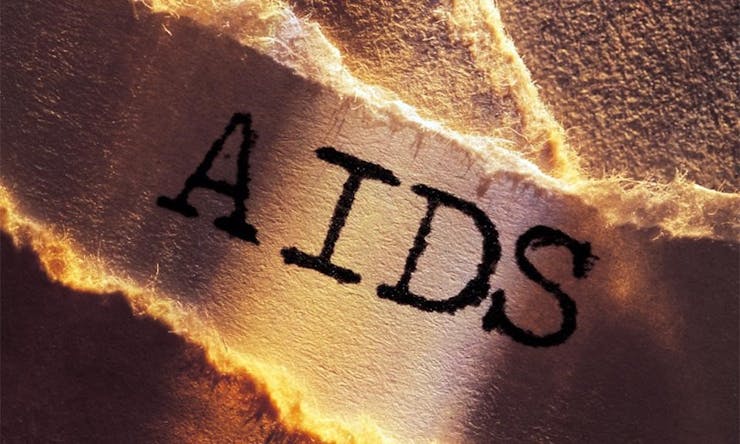Few medical conditions can detract from a person’s sense of health and happiness like HIV/AIDS. In the past few decades, medical marijuana has become an increasingly common prescription for patients as they attempt to manage the many devastating symptoms of this disease. Today, nearly one in three HIV/AIDS patients turn to cannabis to ward off pain, nausea, appetite loss, cachexia, and emotional decline, a surprising statistic when you consider the social stigma and political blockades surrounding the disease.
What is HIV and What Treatment is Available?
HIV, or human immunodeficiency virus, is a disease that compromises a person’s immune system by killing protective white blood cells. As this defensive system shuts down, other harmful infections, called “opportunistic infections,” thrive. Meningitis, pneumonia, encephalitis, tuberculosis, chronic diarrhea, and cancers are some examples of these infections. The advancement of HIV leads to AIDS, or acquired immunodeficiency syndrome, defined by the appearance of additional infections and a low CD4+ T cell count.
The primary treatment for HIV/AIDS is high active antiretroviral therapy (HAART), a mixture of medications that slow the disease’s progression. Pharmaceuticals may also be prescribed to manage opportunistic infections, AIDS-related symptoms, and the side effects of other prescription drugs.
Living with HIV/AIDS
Daniel J. Kane, an AIDS patient, described the tiring and frustrating task of juggling various drugs. “Wasting syndrome, in combination with other HIV-related symptoms and conditions, left me thoroughly disabled and desperate to obtain relief,” he said. “I suffered severe nausea, chronic exhaustion and physical weakness, neurological complications, persistent anxiety, and a total loss of appetite…I became too ill to ingest the pills that lay at the core of my treatment. Despite my attempts, I simply could not swallow them with any regularity. When I did swallow them, I rarely kept them down.”
About one third of HIV/AIDS patients experience severe pain as a result of the antiretroviral therapy, and other common responses to AIDS medication include nausea, vomiting, appetite loss, and weight loss. The adverse side effects can be so debilitating that patients will abandon their treatment, and long-term vitality, for relief. Patients supplementing their regimen with cannabis, however, are 3.3 times more likely to continue their HAART treatment. The reason for this significant increase is multifaceted.
How Cannabis Can Help Treat HIV/AIDS
Cannabis research might be limited, but there is no shortage of studies supporting the plant’s efficacy in eliminating nausea, vomiting, and appetite loss with a single puff. These effects can also help patients restore weight and maintain essential nutrients. Cannabis, whether inhaled or consumed as an extract, also targets neuropathic pain induced by HIV/AIDS therapy.
Marinol, a synthetic pill formulation of THC, is generally prescribed before medical marijuana. Its legal status makes it an easier target for research, but when compared to inhaled cannabis, patients see a difference. The plant contains hundreds of other therapeutic compounds known as cannabinoids and terpenoids that Marinol lacks, and Marinol has the potential to induce unpleasant side effects in some individuals.
“Not infrequently, a single Marinol capsule would make me feel ‘stoned’ for several hours, such that I was unable to function at a level at which I felt comfortable or competent,” explained an HIV/AIDS patient named Keith Vines. “Other times the Marinol put me right to sleep.”
Shop highly rated dispensaries near you
Showing you dispensaries nearInhaled cannabis, either smoked or vaporized, provides patients with more flexible dosing and control over intoxicating effects. “I found that it took only two or three puffs from a marijuana cigarette for my appetite to return,” Vines added. “Moreover, the beneficial effect took place within minutes rather than hours that I sometimes waited after swallowing a Marinol capsule.”
Not only does cannabis reduce symptoms and side effects, it has also demonstrated some promise as an inhibitor of HIV/AIDS progression. One study, for example, observed a marijuana constituent called Denbinobin slow the replication of HIV. Though this mechanism requires further study, it opens up fascinating possibilities for improved HIV/AIDS therapies.
In today’s society, the importance of mental health is oftentimes swept under the rug. The symptoms of HIV/AIDS can take a heavy toll on patients as physical discomfort converts to emotional anguish. Depression, anxiety, and stress continue to feed physiological deterioration, and yet the euphoric relief associated with cannabis consumption has been pushed into the realm of taboo.
Peter McWilliams, a medical cannabis activist and author who died in 2000, wrote about his experiences as an AIDS and cancer patient. He spoke in depth about the role of cannabis in restoring a patient’s quality of life.
“In addition to the remarkable anti-nausea effects, medical marijuana had one additional benefit–now how do I say this without corrupting the youth of the nation?–I had forgotten how enjoyable it is being stoned,” McWilliams wrote. “I had forgotten, too, how healing enjoyment can be. Yes, pleasure is therapy. Ease to unravel disease. A deep appreciation of life as an answer to death.”
Accessing Medical Marijuana for HIV/AIDS
Patients considering medical marijuana for HIV/AIDS symptom management should always consult a physician before using cannabis, but knowing what options are available can make a world of difference.
“There is no doubt in my mind that for some seriously ill patients, marijuana can help make the difference between life and death,” said physician Neil M. Flynn. “And that for other terminally ill patients, marijuana can make the difference between exercising control over their final months and days and passing in relative peace and comfort, or dying in constant and severe agony.”





